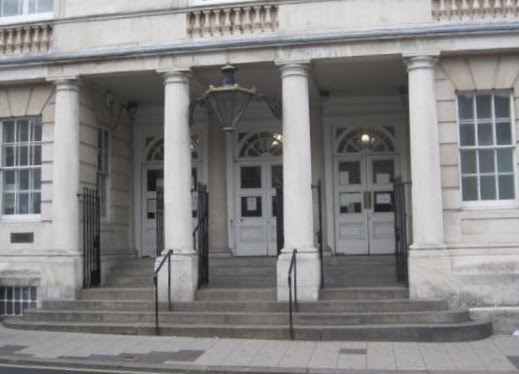UPDATE The jury was discharged on Monday 7 August after failing to reach a verdict.
The jury has retired in the case of a Brighton man accused of sexually abusing and trying to rape the daughter of family friends.
William Burrell-Ashbee, 27, of Howard Place, Brighton, is on trial at Lewes Crown Court charged with abusing the girl between dates in February 2012 and September 2014. Her name cannot be reported for legal reasons.
Over the course of a week-long trial the jury has been told that Burrell-Ashbee allegedly tried to rape the child and sexually assaulted her over two years in Brighton and Portslade.
The judge Stephen Lennard said: “On various occasions some years ago (the child) says she was sexually abused by William Burrell-Ashbee. It is up to you to say whether this is the case.”
Mr Recorder Lennard said that it was his role to give legal directions to the jurors but that they must rely on their own common sense and experience of the world to reach a unanimous verdict.
“I am going to give you my legal directives”, he said. “They provide you with the legal framework inside which you do your work.
“Your job is to judge the evidence. When you come to judge the evidence, you will need your common sense and knowledge of the world.
“However, you must guard against some things too – you must guard against assumptions and preconceived ideas.
“When you found out the nature of these allegations you might have found yourselves wondering about what type of person commits this crime, what type of person is the victim and how victims behave.
“What is asked of you is a fair evaluation. You must guard against your own emotions. You may have felt emotion – sympathy. These are perfectly normal but you must put them to one side.
“You may also have observed the emotion of the witnesses. These emotions are part of the presentation of the witnesses.
“As with all matters of assessment, these are up to you not me. You shouldn’t assume distress is an indication of honesty or reliability any more than lack of distress is a sign of dishonesty or unreliability.”
Mr Recorder Lennard spoke about the importance of each piece of evidence: “They all start out equal and your task is to decide how they end up.”
Burrell-Ashbee is charged with five offences. The jury has been asked to decide unanimously if he is guilty or not guilty on each count.
The dates on the indictment initially covered a period from February 2012 to February 2014 but they were extended to September 2014 by Hugh French, prosecuting.
Burrell-Ashbee denies having abused the child at all, being quoted by the judge today as having said in the witness stand on Wednesday (2 August): “I never did anything that might be an abuse of (the child).”
He faces two counts of attempted rape, two counts of sexual assault and one of inciting sexual activity in a child.
In his summing up the judge pointed the jury towards key questions and evidence but added: “The selection that I make may not have been the one you would make for yourselves. When it comes to the evidence it’s your judgment alone that counts.”
He cautioned the jury against assuming the evidence from the alleged victim was untrue because she did not press charges immediately.
She went to the police in May 2015 after telling her parents on Wednesday 5 November 2014.
He said: “The defence says this makes what (the child) said untrue. I must tell you there are limits to what can be put to a young or vulnerable witness.”
She had said that fear prevented her from reporting it sooner.
He said that the jury should remember that different people would react to what allegedly happened in different ways.
He said that the jury should not assume that discrepancies in stories told to different people at different times made the evidence in court untrue, adding: “Inconsistency does not mean she is not telling you the truth.”
He urged the jury to remember that the defendant had said that he could not fit into the child’s bed where much of the alleged abuse was claimed to take place, having said: “I didn’t fit in by any means.”
Burrell-Ashbee told the court: “I could sit on the edge but not get in.”
The judge emphasised that the defendant denied all the charges and stood by evidence that he gave to Sussex Police in 2014 when he went voluntarily to report the allegations against him.
He had wanted to clear his name but the police did not look into the matter.









